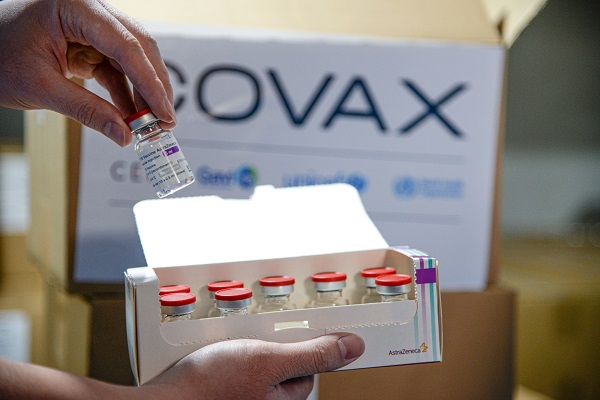
In a historic milestone, the multilateral initiative, COVAX, designed to ensure equitable global access to COVID-19 vaccines, is set to conclude its mission on December 31.
Jointly led by the Coalition for Epidemic Preparedness Innovations (CEPI), Gavi, the Vaccine Alliance (Gavi), UNICEF and the World Health Organisation (WHO), COVAX has played a pivotal role in supplying nearly 2 billion COVID-19 vaccine doses and safe injection devices to 146 economies. This collaborative effort is estimated to have saved the lives of at least 2.7 million people in lower-income economies, receiving free doses through COVAX, along with critical financial support totalling almost US$ 2 billion.
The 92 lower-income economies participating in COVAX will retain the option to receive COVID-19 vaccine doses and delivery support through Gavi’s regular programmes. To date, 58 of these economies have requested a total of 83 million doses in 2024, with a focus on safeguarding priority groups, including healthcare workers, community workers and older adults.
The genesis of COVAX emerged from the unprecedented emergency response to the H1N1 pandemic, emphasising the principle that “no one is safe until everyone is safe”. By the end of 2020, 190 economies had joined COVAX, making it a significant multilateral partnership. COVAX successfully raised US$ 2 billion by November 2020 and administered the first COVAX-supplied doses in a lower-income country within 39 days of the initial vaccine administration in a high-income country in January 2021.
While COVAX faced challenges due to the urgency of its launch, it made substantial contributions to alleviating the global impact of COVID-19. During the pandemic, the initiative supplied 74 per cent of all COVID-19 vaccine doses to low-income countries. Notably, 52 of the 92 AMC-eligible economies relied on COVAX for over half of their COVID-19 vaccine supply. The initiative’s efforts, combined with financial support, achieved a primary series coverage of 57 per cent among the 92 AMC-eligible economies, compared to the global average of 67 per cent.
COVAX also implemented a humanitarian buffer, deploying 2.5 million doses to protect vulnerable populations in humanitarian and conflict settings. The initiative faced challenges in reaching non-governmental channels, providing valuable insights into systemic barriers during global emergencies.
As COVAX concludes its mission, the successes and challenges underscore the need for better global pandemic preparedness. Lessons learned include the importance of an end-to-end solution for equitable access, diversifying vaccine manufacturing to mitigate nationalism, and accepting financial risks to avoid delays in medical countermeasure development and delivery.
With most advance purchase supply agreements completed or terminated by the end of 2023, COVAX AMC funds remain in the pandemic vaccine pool. These funds will be reinvested in initiatives such as the African Vaccine Manufacturing Accelerator (AVMA), providing up to US$ 1 billion to support vaccine manufacturing on the African continent. Additionally, a First Response Fund will be established for immediate financing in future pandemics, and “The Big Catch-up” effort aims to address immunisation gaps caused by the pandemic.
Reflecting on COVAX’s achievements, the chair of the board of CEPI, Jane Halton acknowledged the millions of lives saved and urged the initiative to serve as a reminder for global improvements in future responses. José Manuel Barroso, Chair of the Board of Gavi, highlighted COVAX’s historic impact and emphasised the need to transform lessons learned into tangible action. UNICEF executive director, Catherine Russell expressed collective pride in the massive and historic undertaking and UNICEF’s commitment to delivering vaccines globally.
The WHO director-general, Dr. Tedros Ghebreyesus stressed that COVAX’s creation gave millions worldwide access to essential tools, contributing to valuable lessons for better pandemic preparedness.
In closing, COVAX stands as a testament to global collaboration and innovation in addressing the greatest health challenge of our time. As it completes its mission, it leaves behind a legacy of lessons learned, shaping a more resilient and prepared world for future pandemics.


